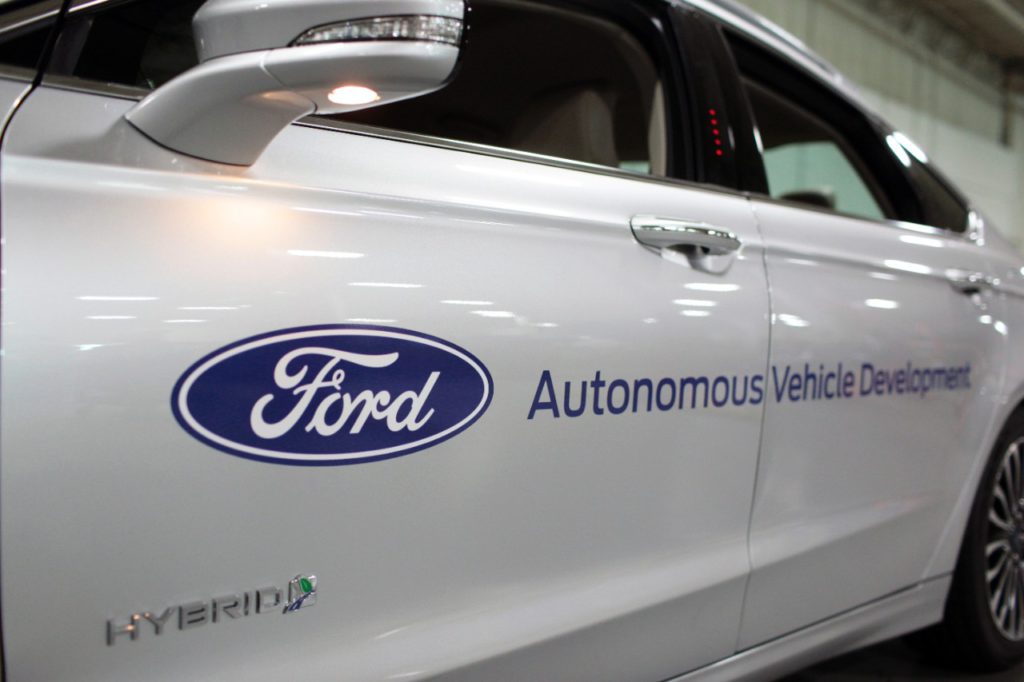New Ford management to watch over European market
25 May 2017

25 May 2017
The management reshuffle at Ford could put its European operations under scrutiny, especially following the withdrawal of General Motors (GM) from the market, to focus on other regions.
The European arm of the US vehicle manufacturer has returned to profit in Q1 2017, after three consecutive years of losses. However the margin, just 2.3%, is very slim and could dip again before the end of the year. The company is facing the same pressures in Europe as GM did, including increased competition from premium brands in the mainstream market, rising development costs for small vehicles that are too sophisticated for other markets, and tougher emissions tests in the EU.
Ford has replaced CEO Mark Fields with Jim Hackett, who was previously in charge of the company’s Smart Mobility division. At the announcement of the appointment, Chairman Bill Ford commented: ′We need to speed up decision making and address under-performing areas.’
While GM has pulled out of Europe by selling its business to PSA Group, in order to focus on other continents, it did this by selling the Opel and Vauxhall brands it owned to another manufacturer. Ford is a global brand in its own right and so selling its rights in Europe is not an option. However, Ford has already shown it will quit markets that aren’t working for the company, including last year when it pulled out of Japan and Indonesia. The company is also scaling back its car production in Thailand to focus on pickups and has announced plans to cut 1400 salaried jobs in North America and Asia through voluntary early retirement and other financial incentives to help boost its stock price. Ford is losing share to GM and Asian competitors in the US, partly due to a product drought as former CEO Alan Mulally prioritised reworking the F-Series pickup over investing in new models.
The UK is Ford’s biggest European market, but the company has said its 2017 European profits will be lower because the pound has collapsed since Britons voted last June to leave the EU, making its cars more expensive. The company has a 7.2% market share in the EU according to ACEA figures for the first four months of 2017, the same as in January to April 2016. However, Ford has undoubtedly benefitted from the declining market share of GM’s Opel division, which has fallen to 6.4% in the year-to-date from 6.8% in the same period in 2016.
Hackett will have to work to strengthen the carmaker in Europe and beyond and promote a stable vision in its plans for future mobility. With Ford’s market share being eroded in the US and challenges in Europe, the company needs to diversify, a change it is already willing to investigate with new appointments to managerial positions. Hackett’s appointment may not be reflected in any Q2 2017 results but the company is hopeful that effects will be felt by the end of 2017.
At the time of writing, news is breaking in Automobilwoche that Steven Armstrong will take over from Jim Farley as the head of Ford in Europe, Middle East and Africa from 1 June. Armstrong is currently the COO in Europe, having worked closely with Farley, who has been appointed executive vice president and president, Global Markets. Automobilwoche also reports that Sherif Marakby has been appointed to the new position of vice president, Autonomous Vehicles and Electrification from 12 June. Raj Nair will replace Joe Hinrichs as the new head of Ford in North America, effective 1 June, and from 1 July, Peter Fleet will replace David Schoch, who is retiring from his role as head of Ford in the Asia-Pacific region. Mark Ovenden will take over Fleet’s current responsibility for sales and marketing in Asia.
Photograph courtesy of Ford
The insight behind the news
Never miss another story – sign up to receive your complimentary Autovista Intelligence Brief. This timely and incisive daily briefing covering automotive news and insights on the issues affecting your business is delivered direct to your inbox.